Global Governance
Your Present Location: PROGRAMS> Global GovernanceThe world`s top think tanks meet at China to mark the beginning of the G20
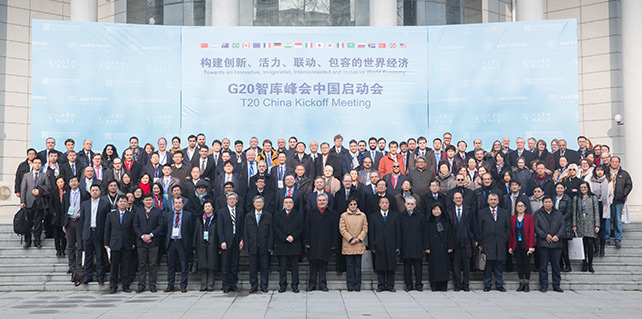
T20 China Kickoff Meeting opens in Beijing.
From December 14th to 15th, 2015, the T20 China Kickoff Meeting was held at Renmin University of China. It was attended by over 400 guests including representatives of almost 100 top think tanks from more than 20 countries, as well as politicians, experts, and representatives from several international organizations such as the UNDP and OECD, who came to contribute wisdom and knowledge on topics related to the 2016 G20 China theme of “Towards an Innovative, Invigorated, Interconnected and Inclusive World Economy”.
Jin Nuo, Chairwoman of the University Council of Renmin University of China; Ambassador Wang Xiaolong, Chinese G20 Special Envoy; Cai Fang, Vice President of the Chinese Academy of Social Sciences (CASS); Chen Dongxiao, President of the Shanghai Institutes for International Studies (SIIS); Güven Sak, Managing Director of the Economic Policy Research Foundation of Turkey (TEPAV) and T20 Chair; Dennis J. Snower, President of Kiel Institute for the World Economy of Germany; Cristina Pinna, Policy Adviser at Policy and Partnership Unit of UNDP in China; Carl Dahlman, Head of Global Development Research at the OECD’s Development Centre; and other G20 experts attended the opening ceremony of the kickoff event, which was hosted by Executive Vice President of Renmin University of China, Wang Liming.
As one of the important outreach groups of G20, T20 is an important platform for global think tank representatives to contribute their wisdom and thoughts for the G20, and over the years has attracted the attention of the world because for its great influence on G20 policy decisions and implementations. The T20 China Kickoff Meeting marks the first public G20 event in China, and opens the “China Moment” for the 2016 G20 Hangzhou Summit. This event was co-organized by Institute of World Economics and Politics at Chinese Academy of Social Sciences (IWEP, CASS), Shanghai Institutes for International Studies (SIIS) and Chongyang Institute for Financial Studies at Renmin University of China (RDCY), which together are designated as the three official joint coordinating think tanks for the 2016 T20 Summit.
In his speech, Chinese G20 Special Envoy Ambassador Wang Xiaolong said the Chinese government attaches great importance to the unique role of the T20 as the “brain trust” of the G20. The theme and the priorities of China’s G20 presidency are based on the present demands and state of the global economy. There is much work to be done to reach a consensus on the key world economic issues, and to turn this consensus into action at the G20 Summit. The success of the G20 Summit in 2016 depends on a collective and coordinated effort that brings together people from different fields and countries. At present, there is a need for new ideas to promote the growth of the world economy, to strengthen global economic governance capabilities, to take precautions to avoid another economic crisis, and to develop the G20 to be more effective in its role as an international forum for economic cooperation.
Chairwoman Jin Nuo made a keynote speech at the opening ceremony, and gave three suggestions for promoting the sustainable development of the global economy. Firstly, the macroeconomic policies of governments should focus on long-term economic growth, and take innovation as the driving force to increase the potential growth rate. Second, while ensuring to accomplish the global sustainable development goals, the emerging countries and developed countries should take active measures to resolve deep-rooted structural conflicts, release productive forces, and enhance international competitiveness through technological innovation and total factor productivity improvement. Thirdly, under the framework of the UN Sustainable Development Goals, all countries should promote inclusive development and ensure all people share the benefits and wealth brought by the growth of the global economy, making sure that no one is left behind.
Vice President Cai Fang pointed out that the current world economy is still undergoing deep adjustments, and global economic governance is facing many outstanding problems. The first is the weakness of world economic growth, as well as ineffective and unsustainable demand management policies; the second is the high global debt level, which increases the risk of a new round of global economic crisis; third is the downturn or even negative growth of international trade; fourth is the big gap between the sustainable development goals and reality. Cai Fang said that he hopes these problems can be fully discussed in the following T20 events, and that the theme and the priorities that China has proposed will receive special research attention from think tanks.
President Chen Dongxiao said, as the host of the 2016 G20 Summit, China can play a big role on building bridges, promoting growth, and catalyzing action. Think tanks can make huge contributions to the G20 agenda in these three areas. As the saying goes: if you want to go fast, walk alone; and if you want to go far, walk together. He stressed that think tankers need to not only think, but also cooperate on this great project in order to establish a more inclusive world economy.
Managing Director Güven Sak said that Turkey had made some contribution to the transitional agenda and set investment, implementation, inclusive growth as its priorities. He hopes that China`s G20 presidency can continue to promote this transformation, and hold an innovative summit. He hopes that the T20 can build a strong network to share the future development agenda with G20.
As the representative of the 2017 G20 Summit host country, Dennis J. Snower pointed out that the theme proposed by China this year brings up a wide-range of topics, taking into account not only traditional economic issues, but also the issues of society, the environment and inclusive development, which are essential to solve the problems we are facing with today.
Cristina Pinna said that the United Nations has developed a number of new mechanisms for sustainable development, and will set several new goals for 2030. 2016 is a crucial year for achieving these goals, and she believes that China will contribute more achievements as the president of the G20.
Carl Dahlman said that the world is facing a variety of problems such as a changing demographic structure, terrorism attacks, and environmental deterioration. He expects China to put the initiatives into practice when solving the above problems, and as a think tank forum the T20 can have in depth discussions on China’s advantages, and put may suggestions into practice.
This China Kickoff Meeting echoed the outcomes of the G20 Antalya Summit and the expectations for China’s presidency in 2016. The participants discussed the topics of “challenges of global governance under new circumstances”; “exploring new dynamics for global inclusive growth”; “G20 governance and innovation systems”; “international investment and interconnected economies”; “experiences from the Antalya summit for China’s G20 presidency”; “what are China’s priorities for 2016 G20 presidency?”; “international institutional reform under the G20”; “green development and global governance”; and offered advice for the China 2016 G20 Summit.
Wang Wen, the Executive Dean of RDCY, released the research report “G20: From 2016 to 2030” at the kickoff meeting.
The report notes that the G20 is undergoing two major transformations: transforming from a crisis response mechanism to a long-term governance mechanism, and transforming from cyclical policies to structural reforms. After researching the previous G20 summits, RDCY summarized three major achievements and three major challenges facing the G20. The achievements are stabilizing the global economy, improving global governance, and reform of the global order. The challenges are how to find new drivers for the global growth, how to push forward the global economic structural reform, and how to plan the global sustainable development. The report points out that G20 also needs to enact something similar to a China’s “Five-Year Plan” system to carve out a new path for global sustainable development from 2016 to 2030.
On December 1st, 2015, China officially assumed the 2016 G20 presidency. This is the first time that China will lead the top-level design of global governance. China underlined its priorities with 4 “I”s, and stated that China would work together with all G20 members towards an innovative, invigorated, interconnected and inclusive world economy. Currently, preparations for the G20 Hangzhou Summit are in full swing.
After the T20 China Kickoff Meeting, the T20 will hold an international seminar each month before the G20 Leaders’ Summit at Hangzhou, and discuss the issues of global economic governance and other agenda items for the Summit.
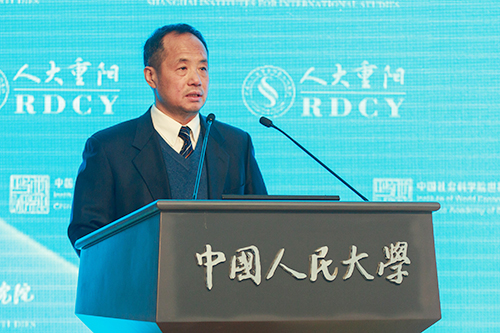
Wang Liming, Executive Vice President of Renmin University of China, hosted the ceremony meeting.
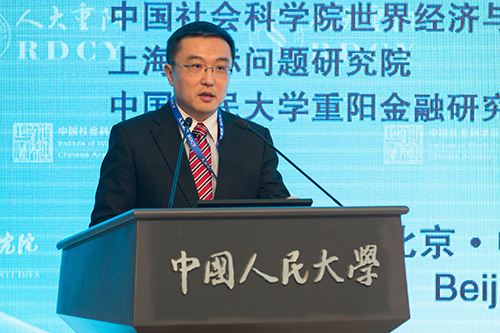
Wang Xiaolong, Chinese G20 Special Envoy, made a speech at the opening ceremony.
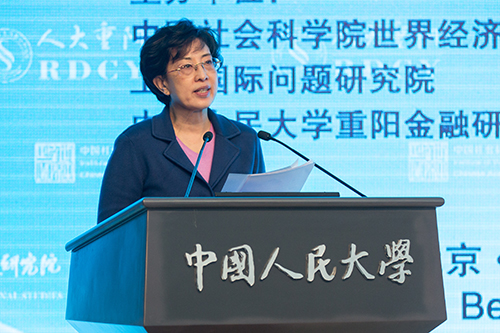
Jin Nuo, Chairwoman of the University Council of Renmin University of China, made a speech at the opening ceremony.
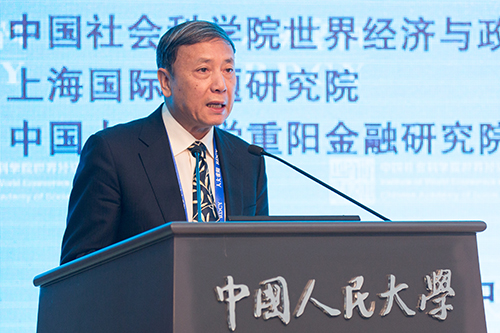
Cai Fang, Vice President of Chinese Academy of Social Sciences (CASS), made a speech at the opening ceremony.
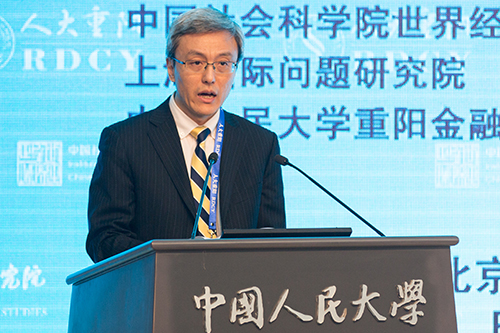
Chen Dongxiao, President of Shanghai Institutes for International Studies (SIIS), made a speech at the opening ceremony.
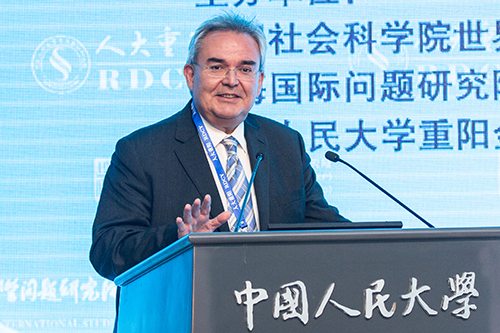
Güven Sak, Managing Director of Economic Policy Research Foundation of Turkey (TEPAV), T20 Chair, made a speech at the opening ceremony.
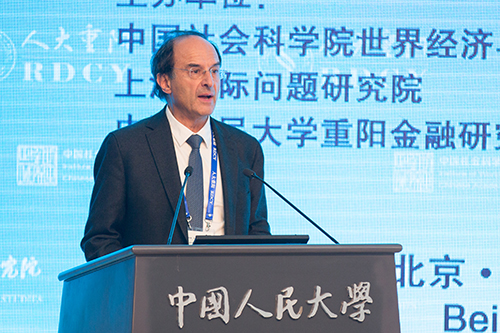
Dennis J. Snower, President of Kiel Institute for the World Economy of Germany, made a speech at the opening ceremony.
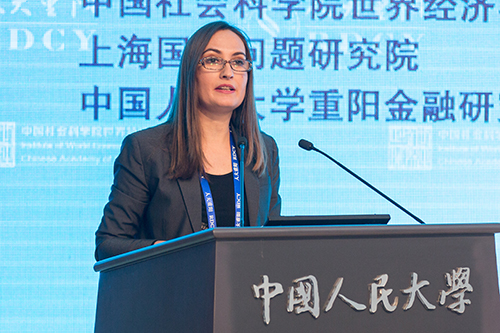
Cristina Pinna, Policy Adviser, Policy and Partnership Unit, UNDP in China, made a speech at the opening ceremony.
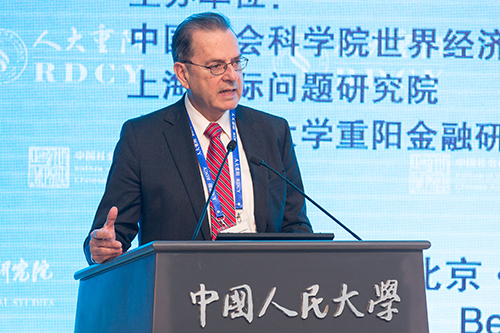
Carl Dahlman, Head of Global Development Research at OECD’s Development Centre, made a speech at the opening ceremony.
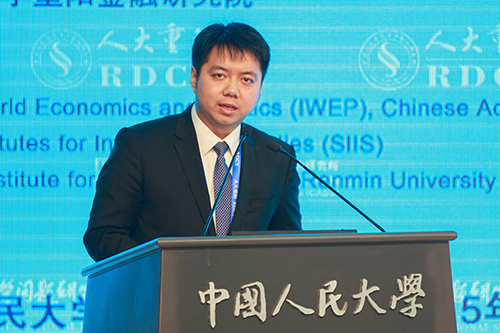
At the opening ceremony, Wang Wen, the Executive Dean of RDCY, released the Research Report on "G20 : From 2016 To 2030".
Key Words: G20; think tank; kickoff meeting























































































 京公网安备 11010802037854号
京公网安备 11010802037854号





